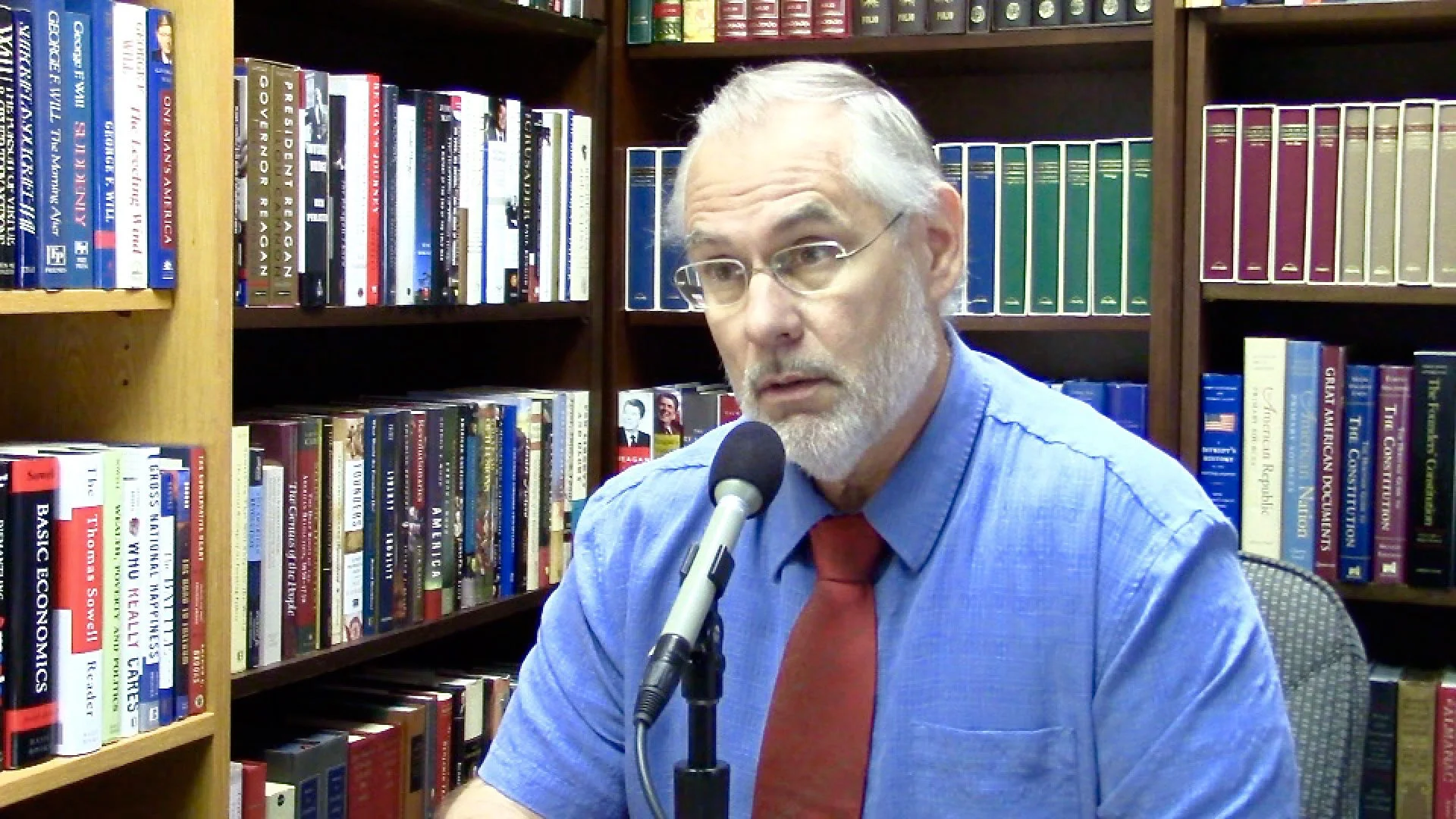Economist predicts inflation, even price controls, in 2022
By Theresa Opeka, Carolina Journal
Whether it is filling up at the pump, paying more for goods and services, or not finding your favorite item on the grocery store shelves, there is no denying that inflation and supply chain issues have affected everyone in one way or another. Mike Walden, professor emeritus in economics at North Carolina State University, said prices unfortunately look like they'll be getting worse before they get better.
Walden said inflation is the worst it has been in 40 years and is being blamed on supply chain issues. But it is also due to over $5.5 trillion being pumped into the economy by the federal government over the past two years, more than at any other time. He said normally, during a recession, like the one that occurred with COVID, there would be a reduction in spending, but not this time. Consumers have been flush with money, savings rates skyrocketed, and the retail sector was at an all-time high this Christmas.
“As economist Milton Friedman said, 'too much money chasing too few goods and services,'” said Walden on John Locke’s Shaftesbury Society Monday. “People ask me if we are going to pay for all the extra money given out over the last two years. I say we already are with higher prices. The supply chain won’t be fixed for another four or five months.”
According to Walden, inflation during most of 2022 should be above 4%, down from the most recent 7%, but above the 1-2% we have been used to the last few years. The Biden administration has basically been “kicking the can” when they initially said inflation didn’t exist, then said it was transitory and blamed certain sectors of the economy, like meat processing plants for not having enough competition.
“I can see them going to the next step,” he said. “In late summer, if the mid-term elections look to be a disaster, inflation is still roaring, the president and his people are getting pushback, I can see him stepping in and doing a 'Richard Nixon' with price controls.”
While he has no inside information, Walden said price controls would be the next logical step and disastrous for the economy. In 1971, the Nixon administration set price controls. Once they were taken off, prices went up even higher.
It took the Federal Reserve’s intervention to help the situation.
“Jay Powell, recommended by Biden [for the Federal Reserve chair] said they will raise interest rates beginning as soon as March and throughout the year,” Walden said. “I am looking at the Federal Reserve putting the brakes on the economy. Do they put them on enough to slow it down to squeeze inflation out, or do they put the brakes on too hard and bring the economy to a screeching halt and later in 2022, we have a recession? I think that is a clear possibility.”
Other economists who study this in-depth say interest rates can’t just be raised a quarter percent or half percent but may be raised by 3 percentage points, which would send mortgage rates up to 6% and would likely cool the economy.
The late Paul Volcker, former chair of Federal Reserve for Presidents Jimmy Carter and Ronald Reagan, tried to end inflation by putting the brakes on the economy, triggering a deep recession. It eventually brought inflation down to moderate levels for 30 years.
If the Fed is serious about alleviating inflation, Walden suggests it should take steps to show the markets by raising interest rates as high as 3%.
You may also see that some shelves in the grocery store are still empty. Walden blamed labor, or lack thereof.
“You ask anyone in any part of the supply chain and nine out of 10 will say it is labor,” Walden said. “Also, with another bout of the virus, a lot of people are afraid to go back to work. People are told they can’t go back to work until they get vaccinated. I think right now, it’s tied in with labor constraints, some of them self-imposed in the economy.”
The service industry is suffering from the labor shortage, particularly restaurants and hospitality. Walden thinks a lot of former workers in that industry have “upscaled themselves,” in particular younger people, who have gone back to school and are now working in areas like health care and information and getting better wages.
An unusually high number of retirements this year has also contributed to the shortage. These factors mean that even when COVID gets to a more manageable level, industries may still have staffing issues and will likely consider streamlining or automating some jobs.
While we are still able to keep financing the national debt, there is a sign that signifies trouble. “Watch the international value of the dollar,” Walden said. “If it starts to tumble and continues to tumble, that is a sign we have overdone it dramatically with the debt.”



